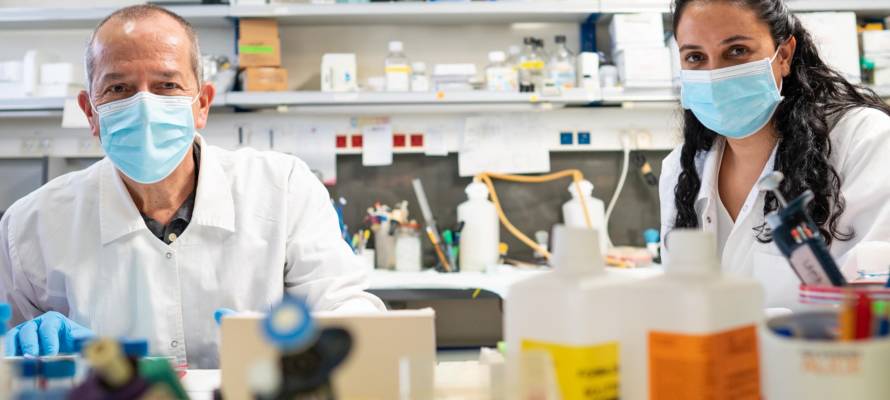Researchers at the Technion discovered that early diagnosis of heart problems in cancer patients could improve significantly the success of treatment.
By Yakir Benzion, United With Israel
Researchers at Israel’s leader Technion Institute of Technology have made a breakthrough discovery that there is a connection between the heart and cancer.
A team headed by Professor Ami Aronheim, Professor Yuval Shaked, and Dr. Shimrit Avraham figured out that early changes in the heart resulting from cardiac disease or damage to the vital organ in a cancer patient can result in the progression of cancer.
The findings could potentially help cardio-oncologists slow cancer progression and improve cancer outcomes.
It is already known that cancer and cardiovascular diseases are connected and that heart failure and stress correlate with a poor cancer prognosis. This is especially so for those being treated for cancer, where chemotherapy drugs can be damaging to the heart muscle. However, the effects of changed in cardiac function on cancer are not well known.
The researchers investigated the connection between cardiac changes and cancer, investigating whether early changes in heart function when there is no heart failure, known as ‘”cardiac remodeling,” promotes cancer.
To duplicate the phenomenon of cardiac remodeling, the research team used a laboratory technique called transverse aortic constriction (TAC) to exert mechanical pressure on the hearts of laboratory mice. The method results in an increase in heart cell growth called hypertrophy, which is a common effect of cardiovascular complications.
The team then implanted cancer cells into the TAC-operated mice to see if the early cardiac remodeling affects tumor progression.
They found that the mice developed larger tumors at the site of the implanted cancer cells, as well as a higher rate of cancer cells seeding to the lungs, representing metastases (secondary tumors spread from the original lesion) as compared to non-operated mice.
The investigators also found that the TAC-operated mice had a higher level of a tumor-promoting protein called Periostin, but lower Periostin correlated with lower cancer cell proliferation.
The results of the study, published in the medical journal Circulation, showed that there is indeed a connection between cardiovascular disease and cancer.
The findings underscore the importance of early diagnosis and treatment of cardiac disease in cancer patients, showing that early intervention has the potential to significantly reduce the cancer’s progression and improve treatment outcomes.
“As a result of the study, we recommend that you treat heart problems early, when the body is still successfully coping with the problem, and not wait for a chronic condition,” said Prof. Aronheim. “Such problems can be detected with a simple echocardiography test, and in many cases, early catheterization may help to slow cancerous development.”
